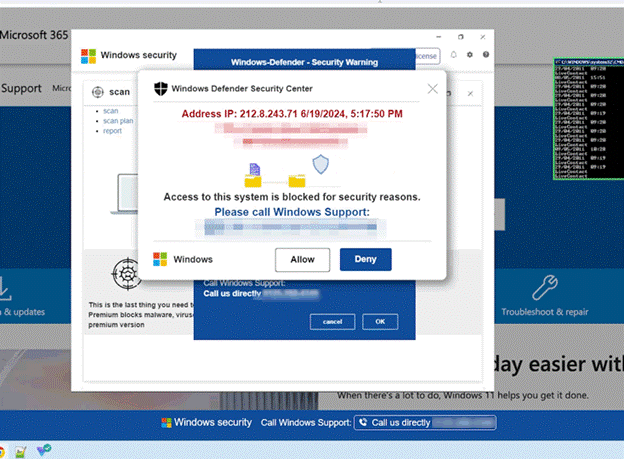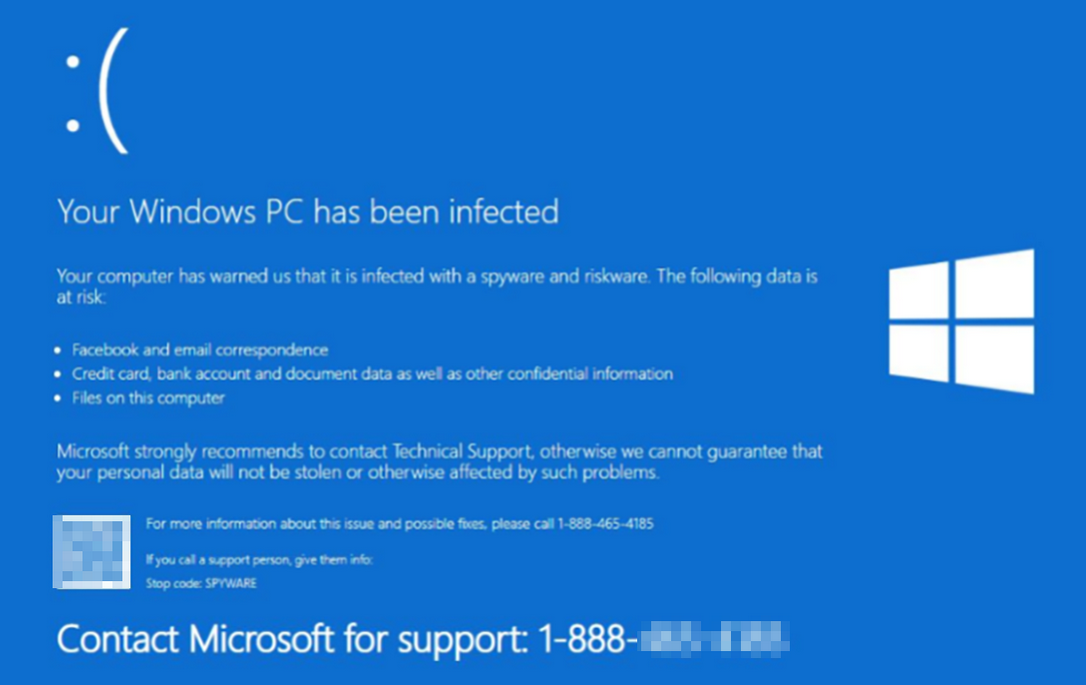WHAT TO LOOK FOR
Unsolicited emails, text messages, phone calls or pop up messages claiming to be from a tech support company.
A claim your computer is infected with viruses or your personal data is in danger.
Request for remote access to your computer.
You are instructed to type commands like “cmd", "tree", or "netstat”.
Upfront payment request to “fix” the computer issue.
PROTECTING YOURSELF FROM TECH SUPPORT SCAMS
Be suspicious of messages claiming to be from tech support. Verify the person’s name and position and get a case number, then contact the company directly through their official website or phone number.
Ignore pop-ups claiming there is a problem on your device. Legitimate companies do not use pop-up ads to provide security warnings. Close out of the website or restart your computer if you can’t do this.
Never give out personal or financial information if you receive an unsolicited request for it from someone you do not know or can't verify their identity.
Do not grant access to your computer to someone you don’t know or to anyone who contacts you through an unsolicited message.
Never click links that appear in pop-up messages or unsolicited emails and texts.
Do not share personal information like passwords, social security numbers, or financial information over the phone or online unless you are sure of the recipient’s identity.
Be cautious if someone asks you to pay for products or services with gift cards, wire transfers, and cryptocurrency. Scammers prefer these methods because they are impossible or difficult to trace and reverse.


